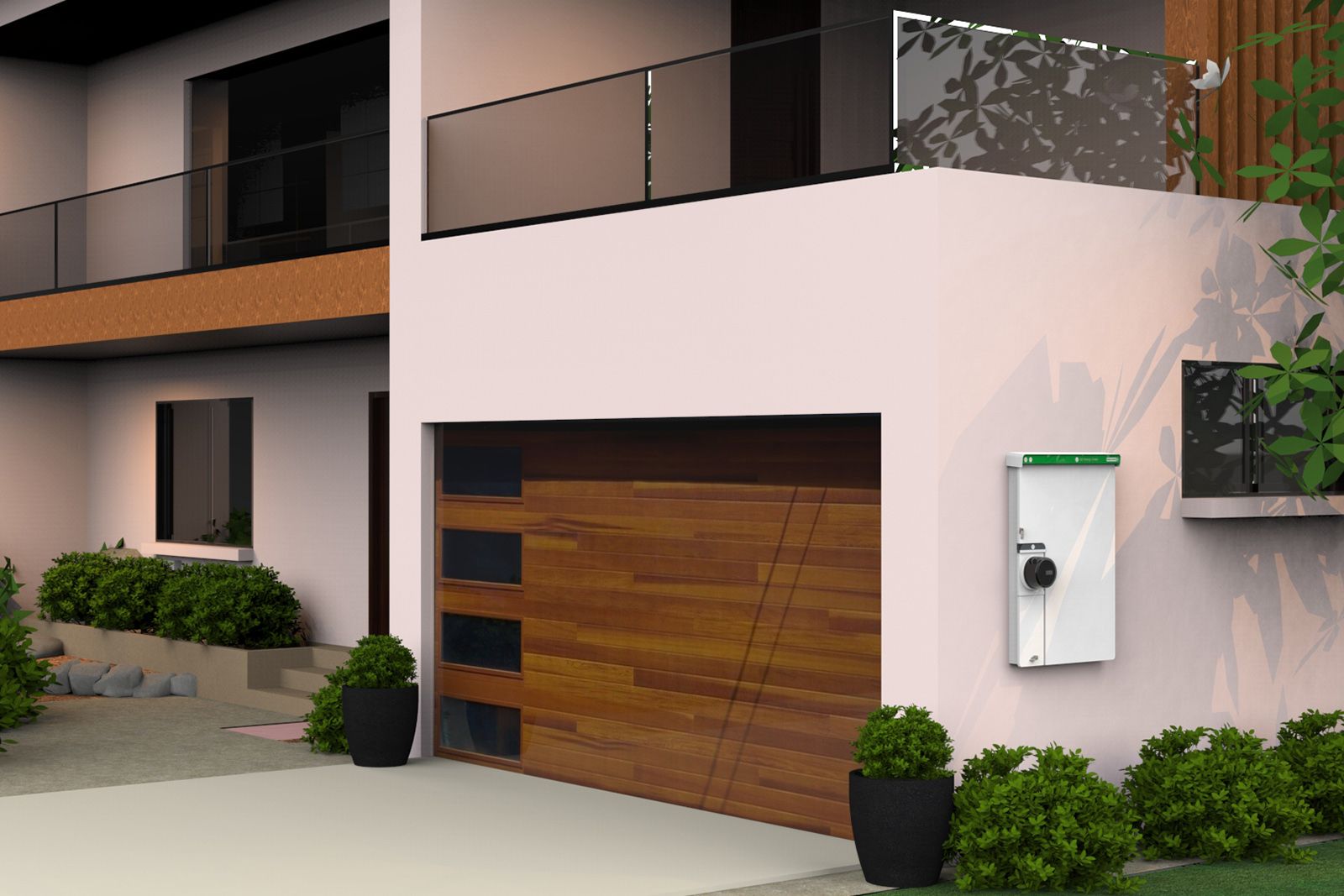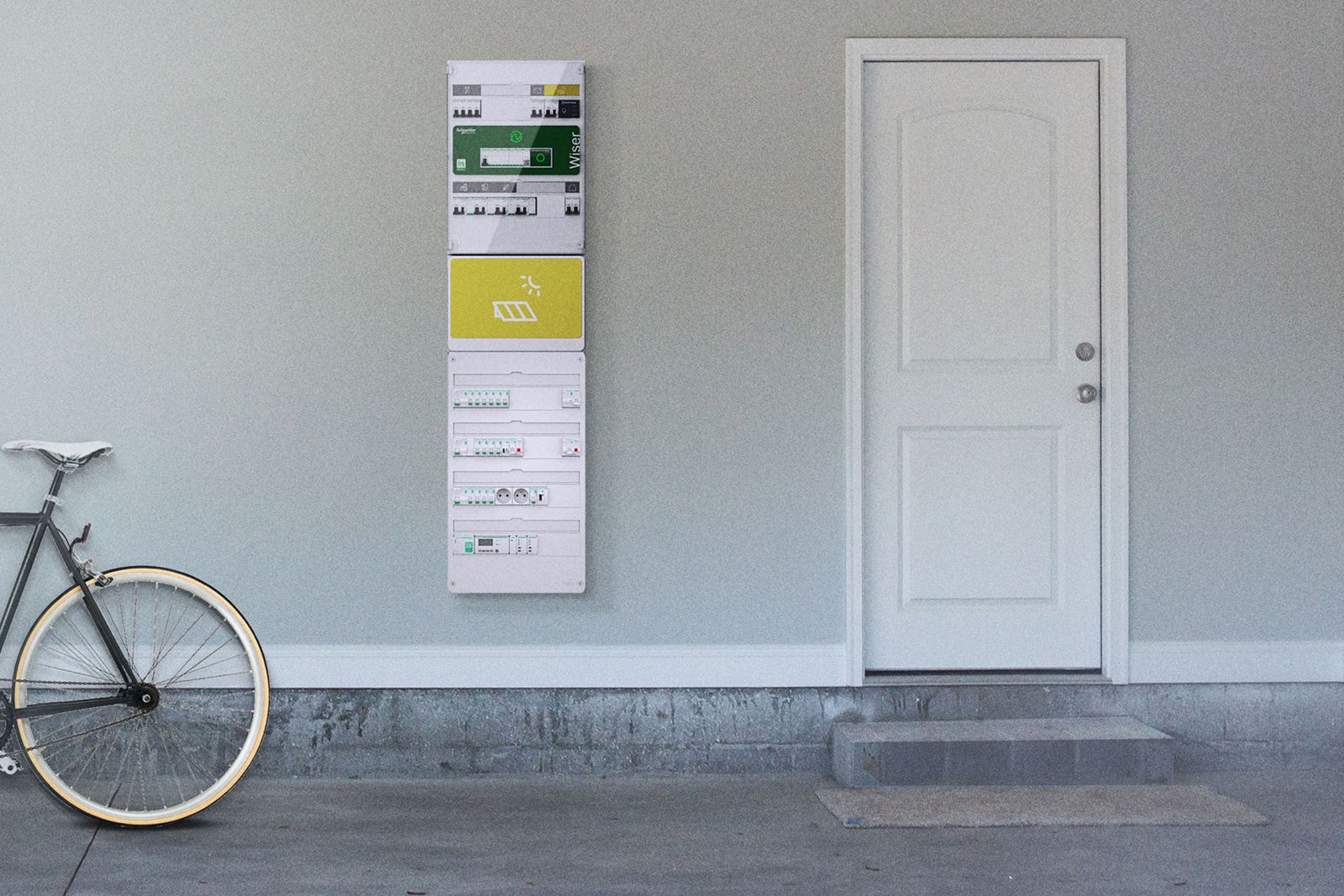We are currently undergoing a massive seachange in the way we use gadgetry and devices in our homes. Everything is getting smarter, including the cars on our drives and in our garages. And our reliance on fossil fuels for cooking and heating is rapidly diminishing.
However, while our transport may be heading towards zero emissions and we're no longer burning gas to keep us warm or fed, we still have to be aware of the amount of electrical energy we're using. The smarter our homes, the more carbon we still use, as we need to power and charge every device.
Renewable energy sources are important, of course. Solar panels on the roof could certainly help, along with a mighty battery in the loft or basement, but their not solution on their own. We need to manage our energy use more cleverly in order to both aid the environment and our own pockets.
That's the thought of Jai Thampi, the senior vice president of innovation at Schneider Electric. His company makes the Wiser Energy Center (AKA Square D Energy Center for the US market), a controller for all the energy needs of a home, regardless of source. It uses artificial intelligence to help assess energy expenditure across different rooms and purposes, and balance it to be more efficient.
We spoke to Thampi for this week's Pocket-lint Podcast (which you can listen to here from Friday 19 February), where he explained how the system works: "The WIser Energy Center is the next generation of your electrical panel. It's a fully connected electrical panel, modular, and is designed to also take into account any future energy source, such as solar, a battery, etc," he said.
"At the same time, it also designed for the evolving needs of homes of the future. So think of electric vehicles, more electric cooking, heating, etc.
"So basically, the Energy Center is your next-generation electrical panel fully connected, ready for the future. It comes with software and artificial intelligence that will allow you to do things more than just a simple energy."
The idea is that one installation can control different electrical needs, such as an EV charge point, lighting, plug points throughout the home. But also enable electrical supply to come in via different sources - street level, solar, even another form of renewable energy that you might add down the line.
And it uses AI to switch between them to be the most cost effective and low emission. It can also connect with other smart home devices to adjust energy needs depending on other circumstances, and notify the owner if habits also need to change: "Let's say you're leaving home to work, our system, if you set it to an away mode, is able to smartly turn off [unecessary devices]," he added.
"We also have other sensors - for example, door and window sensors. So, if it's a windy autumn day and somebody left the door open, we can send a notification to the customer. Or, we could go to the next level, if the customer gives the permission to, say, manage the temperature, the heating and the cooling. We can also manage how quickly or how slowly the heating happens. Instead of heating it all the way up and cranking it up, we could do it over time, because we know how long it needs for the room to heat up.
"So, there's various ways in which we can actually manage that efficiency."
We already have smart thermostats that do something similar - control the boiler based on temperature and the like - but this is at an entire home level - utlising different sensors for different circumstances, to automatically make our lives easier, cleaner and less expensive.
We also feel it's just touching the surface. AI and smart tech will be invaluable for efficient home life going forward and Schneider, with its Wiser Energy Center, certainly seems to be heading in the right direction.
You should check out the rest of what Thampi has to say on this week's podcast for sure.



